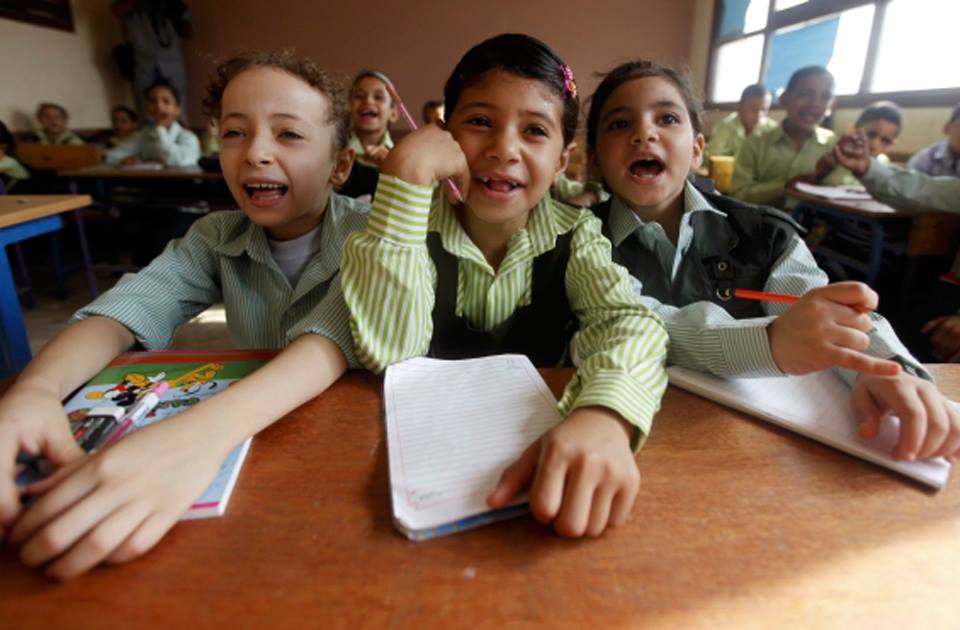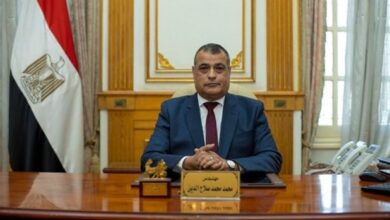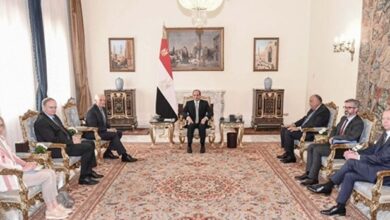In the realm of post-revolution rebuilding, much attention has been directed to the means of establishing a comprehensive framework for improving Egypt’s education system.
Education has long been considered one of the country's weak points, which curbs human development.
“A committee comprised of education specialists and professional academics should be formed to re-plan an efficient tactic for education,” said Mohamed al-Mofty, education expert.
He explained that Egypt suffers from an old-fashioned education system that mainly depends on stuffing students' memories with information, rather than developing their way of thinking.
“Major amendments must be introduced to the academic curriculum, which have not been changed from decades ago,” said al-Mofty. “Curricula should be based on research in an effort to help in the growth of students' minds and create a cultured generation.”
Hamdi Mahmoud, another education expert, said increasing computer use in schools could create a well-educated young generation that could cope with the development of technology all over the world.
“It is illogical that while Facebook was a main initiating factor for 25 January revolution, large segments of public school students still lack computing skills,” Mahmoud said.
Al-Mofty said that scientific research is one of the key forces that can advance the education sector.
“The old regime turned a blind eye to the importance of scientific research, which resulted in the backwardness of the country,” he said.
Al-Mofty strongly supports the mega project for science and technology submitted by Ahmad Zewail, US-Egyptian Nobel prize winning scientist. “If Zewail’s project is implemented, Egypt will have a concrete base for future prosperity,” he said.
In his book "Voyage through Time: Walks of Life to the Nobel Prize", Zewail wrote that in 2000 he proposed a “plan and structure to create a nonprofit Foundation of Science and Technology, with the mission of establishing the University of Science and Technology (UST) and related Technology Park (TP). This project offers a means for building an advanced science base in this age of science and globalization, which requires the integration of human resources, technology, and capital.’’
The project was reportedly accepted by the government and its foundation was laid in 6 October City, but it faced bureaucratic hurdles and was not completed. The project’s land was later seized for building the privately-owned Nile University.
In his speech, Prime Minister Ahmed Shafiq announced that an investigation shows that Nile University was illegally sold to the private sector. Accordingly, the government will restore it to re-build Zewail’s project.
Mahmoud agrees that scientific research will push the country forward, especially after the government showed its interest by creating the Ministry for Scientific Research.
“In this way, we can encourage ‘migrating minds’ to return back to Egypt in order they give their considerable experience to their homeland instead of other countries,” Mahmoud said.
He added that in the next reform phase, the country shouldn’t seek foreign expertise:
“Egypt already has professional experts in different fields who have learned abroad. We have to use and value their experiences for re-establishing an efficient education system.”
However, Mahmoud does not support Zewail’s proposal of allocating most of Egypt’s revenue for education. “The country is passing through a critical phase now,” he explained. “Consequently, other basic problems including food, healthcare and housing must be addressed along with education and scientific research.”
Besides the numerous Facebook groups that are promoting education reform proposals, Nahdet Misr Publishing House has launched an initiative for the same goal.
“We have been thinking of this move a long time ago. After the revolution, however, we found this is the most suitable time to utilize the reform phase for urging all education experts and young Egyptians to send their constructive ideas to our website for developing a new vision for educational development,” said Tarek Hassan, educational publishing manager at Nahdet Misr Publishing House.
The publishing house will hold sessions attended by intellectuals and academics where people can discuss these ideas and reach solutions in order to come up with an action plan, which will be proposed to the Education Ministry.




